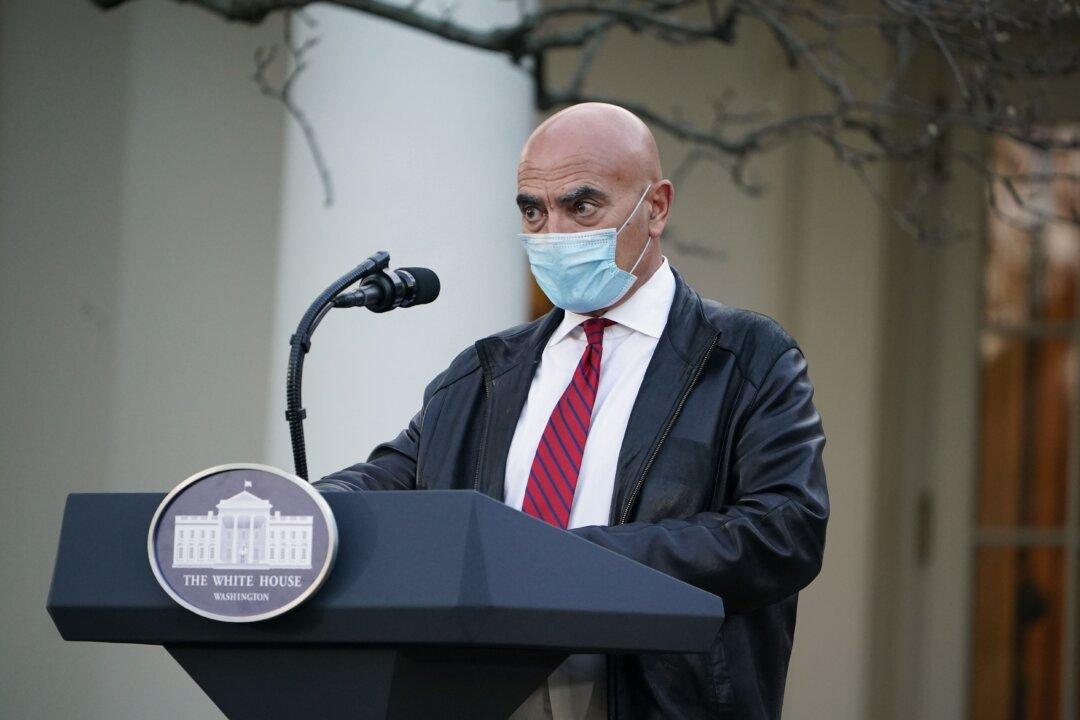A top official from the government’s vaccine development effort on Sunday predicted that by the end of January 2021, there will be a “significant decrease” in deaths among the elderly across the United States, as the nation prepares to roll out COVID-19 vaccinations by the end of the year.
Operation Warp Speed chief Moncef Slaoui told CNN’s “State of the Union” that he expects Food and Drug Administration (FDA) independent advisers to recommend emergency use authorization (EUA) for the COVID-19 vaccine candidate developed by Pfizer and BioNTech, when its vaccine advisory committee meets on Dec. 10.





